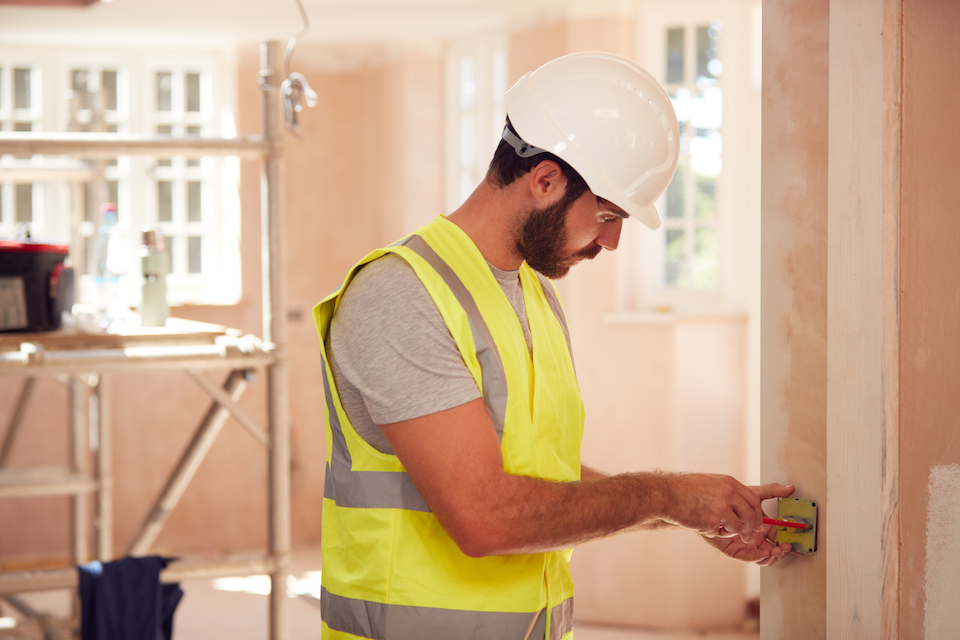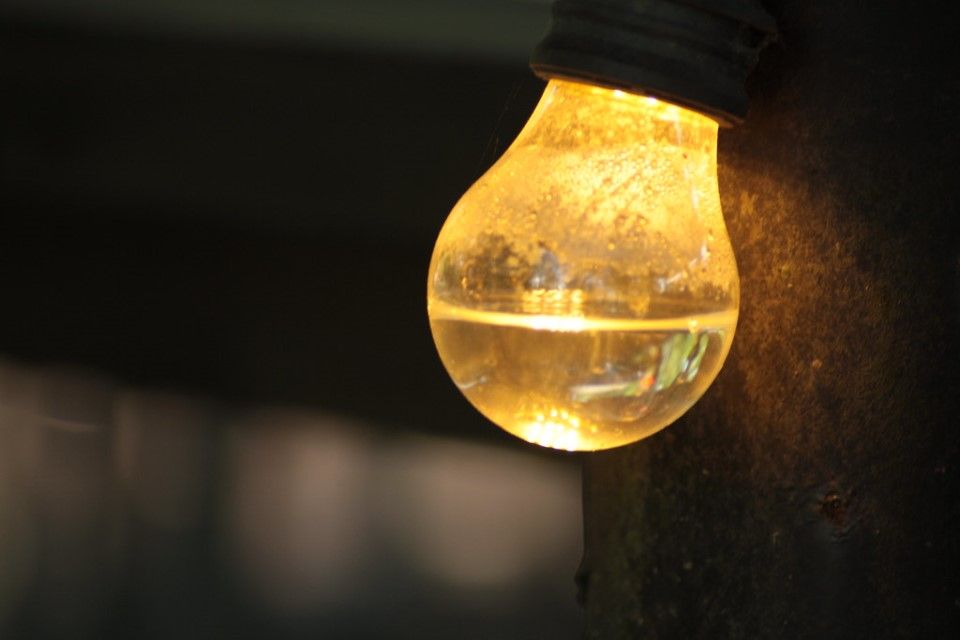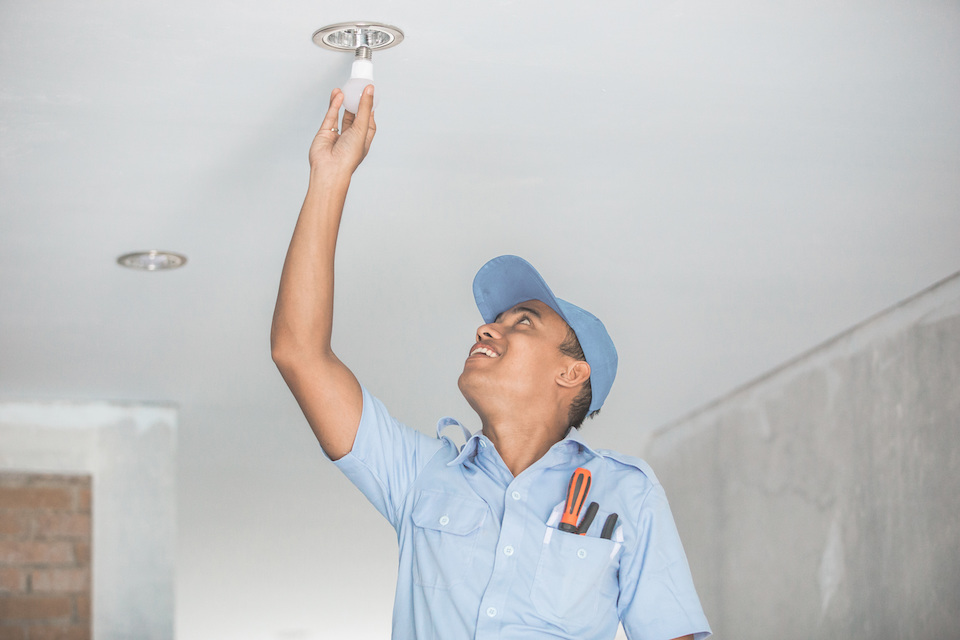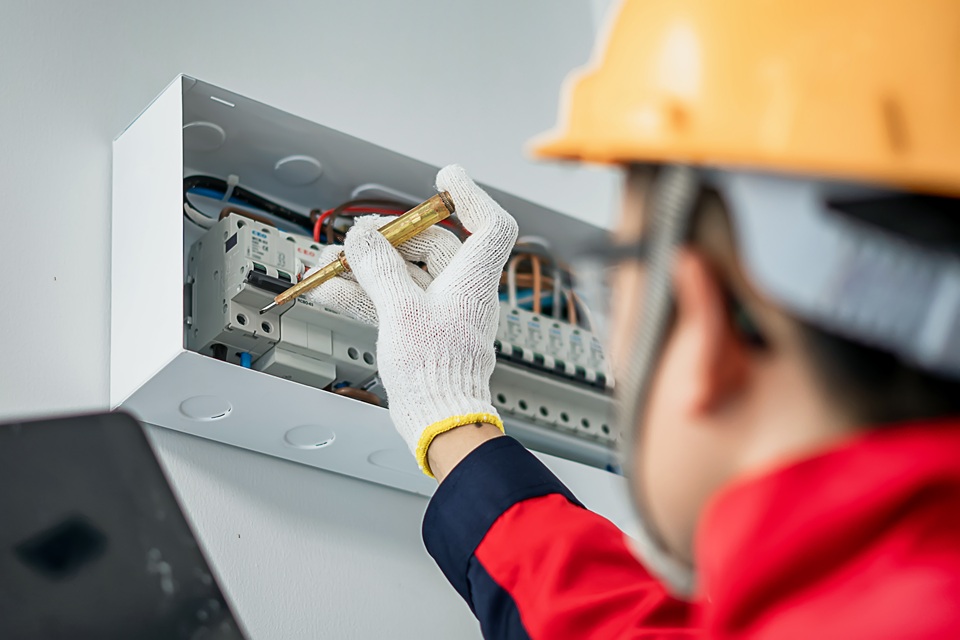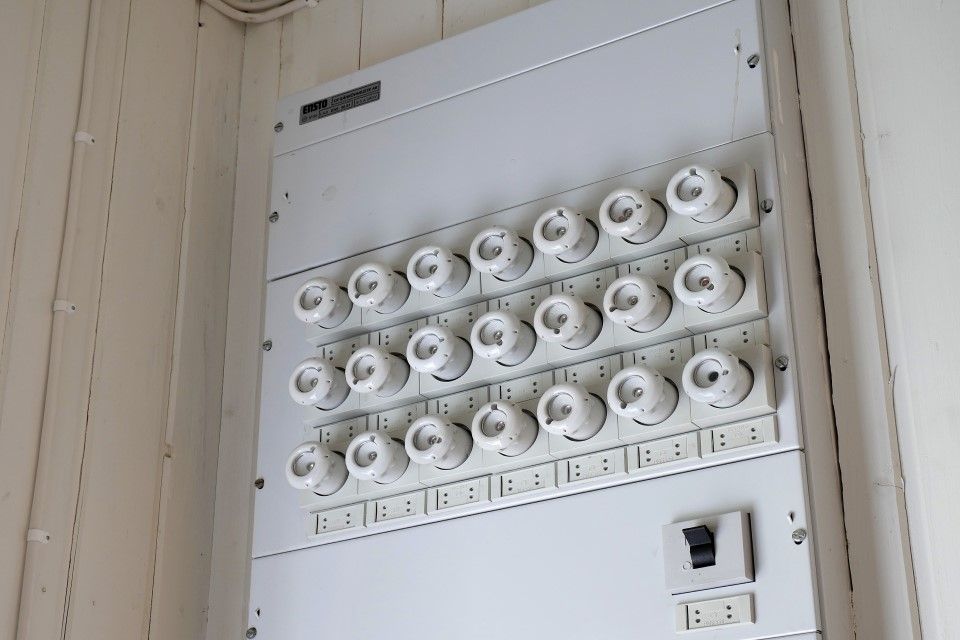How Much is CCTV Installation?
What is the cost of a CCTV installation?
So how much does it cost to install CCTV? The costs will vary depending on the type of CCTV that you’re having installed. The main things that will affect the cost are the number of cameras you’re installing and the type of camera system you choose.
A CCTV camera system can significantly improve your home's security.
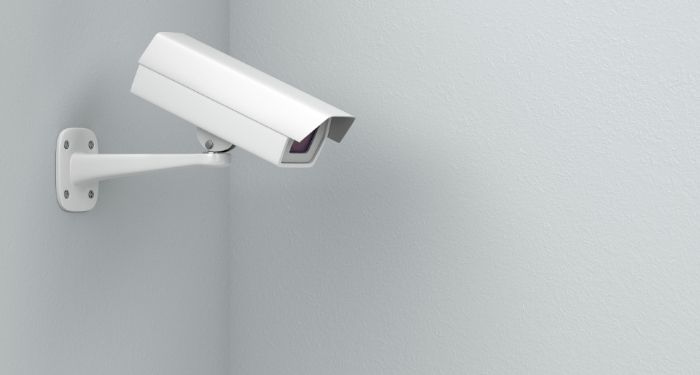
How much do different types of CCTV systems cost?
The cost of CCTV systems will vary depending on the type of system that you choose.
Multi-camera systems can range in price from around £350-£1,700. If you are installing a single security camera system, you can expect this to cost around £70-£2,500. The average cost for a CCTV system installation is around £350.
CCTV Installation Prices
The table below highlights the costs that you can expect for various CCTV installations:
| TYPE OF CCTV INSTALLATION | AVERAGE COST |
|---|---|
| Single dome | £110-£280 |
| Single bullet | £110-£330 |
| Single C-mount | £1,050-£2,600 |
| Single PTZ | £180-£1,050 |
| Single day/night | £150-£440 |
| Single infrared/night vision/thermal | £120-£440 |
| Single motion activated | £120-£240 |
| Single 24 hour | £120-£1,050 |
| Single battery powered | £120-£230 |
| Single wireless | £120-£330 |
| Single 4G LTE | £230-£280 |
Installation costs will also vary dependant upon how many cameras you have installed:
| NUMBER OF CAMERAS | AVERAGE COST |
|---|---|
| 2-cameras | £250-£550 |
| 4-cameras | £600-£1,100 |
| 6-cameras | £700-£1,700 |
How Much Does CCTV Cost? (Supply)
There are many different supply costs involved with installing a CCTV system. Below is a table highlighting the supply costs for single camera CCTV systems:
| TYPE OF CCTV SYSTEM | AVERAGE COST OF SUPPLIES |
|---|---|
| Single dome | £80-£250 |
| Single bullet | £70-£300 |
| Single C-mount | £1,000-£2,500 |
| Single PTZ | £150-£1,000 |
| Single day/night | £120-£400 |
| Single infrared/night vision/thermal | £90-£400 |
| Single motion activated | £90-£200 |
| Single 24 hour | £80-£1,000 |
| Single battery powered | £90-£200 |
| Single wireless | £90-£300 |
| Single 4G LTE | £200-£250 |
The below table breaksdown costs if you were to purchase more than one camera for your CCTV system:
| NUMBER OF CAMERAS | AVERAGE COST OF SUPPLIES |
|---|---|
| 2-camera CCTV | £150-£350 |
| 4-camera CCTV | £200-£900 |
| 6-camera | £500-£1,000 |
Additional CCTV Installation Costs
There are several additional costs involved with installing a CCTV system at your home. Below is a list of the additional costs that may come up with this type of work:
Home Security Installation
A CCTV system is great for helping you see what has happened after an incident. However, it doesn’t warn you of any problems beforehand.
If you are looking to install a full home security system, you can expect to pay around £165-£470 to install a full system.
Alarm systemscan include motion sensors, sirens, control panels, panic buttons, and other security measures.
New Outdoor Socket Installation
An outdoor socket can be extremely useful if you do not want to are unable to run a power cable through your house.
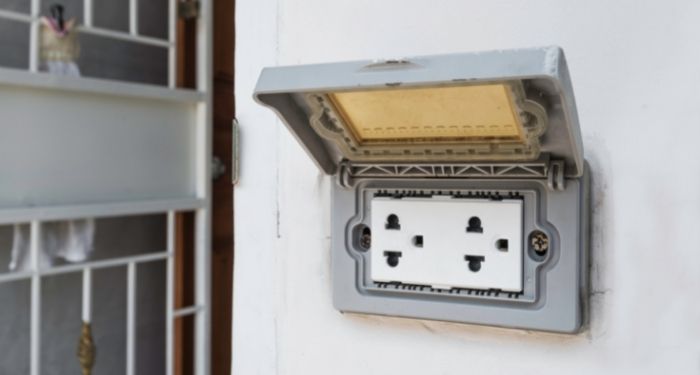
The average cost for installing a new outdoor socket is around £80-£250.
New Consumer Unit Installation
If your current consumer unit doesn’t have enough space or is quite old, then you may need to get a new one installed to support your CCTV system, especially if the new CCTV system is quite an extensive one.
The average cost for a new consumer unit is around £325-£550. The cost will vary depending on the size of the circuit.
New Front Door Installation
A new CCTV system can only do so much, and sometimes a new front door can provide a lot more security to your home. A new and trustworthy front door is an amazing security addition to your home.
The average cost for a new front door is around £300-£4,020. The cost will depend on the type of front door that you have installed and the materials used.
Door Lock Replacement
If you do not want your whole door replace you could consider a simple door lock replacement. This can improve your home security especially if you have a faulty lock or have lost or had keys stolen.
The average cost for a new door lock to be supplied and fitted ranges between £85-£280. The cost will depend on the type of loack and the type of door you have.
Tradesmen Cost of CCTV Installation
The labour costs of having a new CCTV system installed will depend on varying factors. These factors include the type of system that is being installed and your location in the UK.
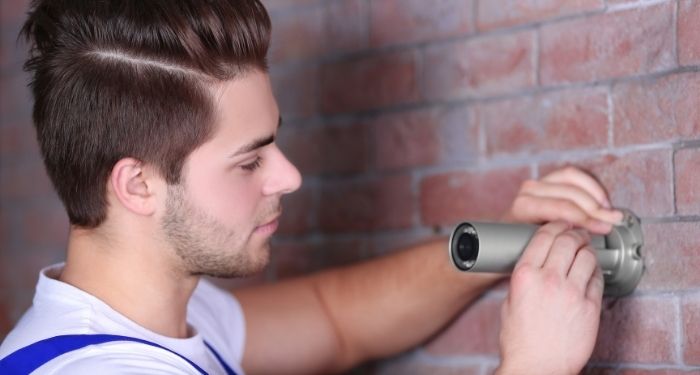
Installing a single camera can cost as little as £25-£50 in labour. Installing a fully wired multi-camera system will cost around £200-£800 in labour costs depending on the size of the system, the type of system, and your location in the UK.
Those based in and around the London area can expect to pay more in labour costs than those based in the north or other parts of the UK.
Installing CCTV is one of the simplest ways to boost security, reduce risk, and protect what matters most.
How Long Does It Take to Install CCTV?
The time it takes to install your new CCTV system will depend a lot upon the system being installed.
A single-camera system can take under an hour to install and usually takes no more than two hours.
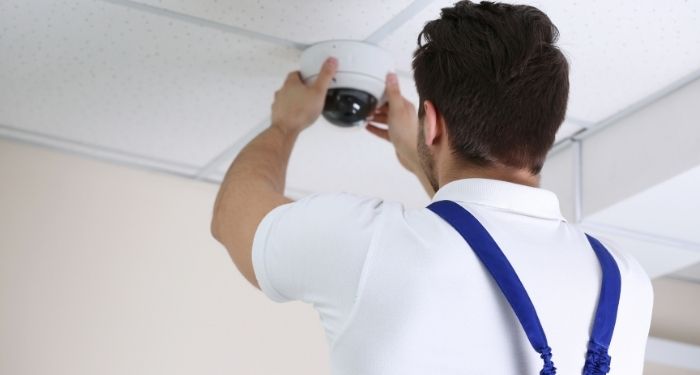
A multi-camera system will take anywhere from a few hours to a full day to install. The installation of a new CCTV system should take no more than a day to install.
Types of CCTV
Here we go into more details about the different types of CCTV systems available. Covering their unique their characteristics as well as pros and cons of each type:
Dome CCTV Cameras
Dome cameras are a popular choice of CCTV cameras. They get their name from the dome-shaped casing the camera sits in. These cameras are ideal for both indoor and outdoor use as they have a very discreet shape.
They are difficult to spot, and it’s hard to know which way they’re facing, so they can easily provide a lot of security.
When they are placed in the right position, these cameras allow wide angles to be monitored.
They are most commonly found in shops, restaurants and hotels; however, they also make great domestic CCTV systems.
Pros:
- Suitable for indoor and outdoor use
- Difficult to spot
- They can provide wide angles
Cons:
- None
C-Mount CCTV Cameras
C-Mount cameras come with detachable lenses, and can be switched with other lenses to adapt the field of view and the distance.
A standard CCTV lens covers around 35-40 feet of distance. However, when you want to cover further distances, you can switch to special lense that can zoom in further without losing focus.
These cameras are bulkier in size and tend to be noticeable by intruders. This can make them an effective deterrent. They come in a durable camera casing that protects them from harsh weather conditions.
Pros:
- These have detachable lenses
- They can cover further distances when you switch the lense
Cons:
- They tend to be bulkier in size
PTZ CCTV Cameras
PTZ cameras allow more control over what is being recorded. They can pan from side to side, tilt up and down and can also zoom in and out of objects when needed.
With great video quality, these cameras can capture great details that can be very useful if your house is broken into.

These cameras can adjust their angle to record the point of interest. These types of cameras are most commonly found in retail environments, casinos, banks, and businesses. However, they can also be found in domestic locations.
Pros:
- Ability to pan from side to side and up and down
- Provides great video quality
Cons:
- More common in retail environments
- Can be pricier than other systems
Day/Night CCTV Cameras
Day/night cameras are built specifically to work in the day and the night, regardless of what the lighting may be light. These cameras have extra-sensitive chips that help to capture very high-definition images even at night.
This makes them great for 24/7 outdoor use. They can also withstand reflections, direct sunlight and glare. Ideal for business locations but also make great cameras for domestic use.
Pros:
- Specifically built for day and night use
- Provides high-definition video's even at night
Cons:
- Can be more costly
CCTV not only deters crime but gives you peace of mind, knowing your property is protected 24/7.
Infrared CCTV Cameras
Night vision infrared cameras are great for recording images even in total darkness. These cameras are usually more expensive than daytime cameras as they can work in the pitch-black.
These cameras can also work in conditions with fog, smoke, and dust. These cameras are best for places that need the ultimate surveillance, even in dark conditions.
Pros:
- Great for night time use
- Provides high-definition video's even in fog, smoke and dust
Cons:
- Can be more expensive than daytime cameras
Wireless CCTV Cameras
Wireless CCTV cameras are great as they minimise the installation time and don’t require excess wires. Due to their discreet appearance, these cameras easily blend in with the surrounding areas so can be easily hidden.
These cameras work best in situations where good presentation is needed. If you are looking to install the best looking CCTV cameras for your home, a wireless CCTV system may be the right choice for you.
Pros:
- Minimise the installation time
- Discreet appearance
Cons:
- None
Benefits of CCTV
There are many benefits to installing CCTV at your home. Below is a list of the main benefits of installing this type of system at your home:
Deter Potential Intruders
Having cameras visible at your home can act as a warning sign and can help prevent thieves from targeting your home. It has been proven that thieves are much more unlikely to target homes with visible cameras than homes with no CCTV installed.
Identify Criminals
If your home is a target for criminals, then you can use a CCTV system as a warning that can stop thieves from targeting your home. If the criminals are caught on your cameras, it can make identifying them much easier. They can also help to speed up the process during an investigation.
Provides Evidence
CCTV is very effective in helping build criminal cases. Your CCTV system can help provide evidence in a wide range of matters, including vandalism, theft, and stalking.
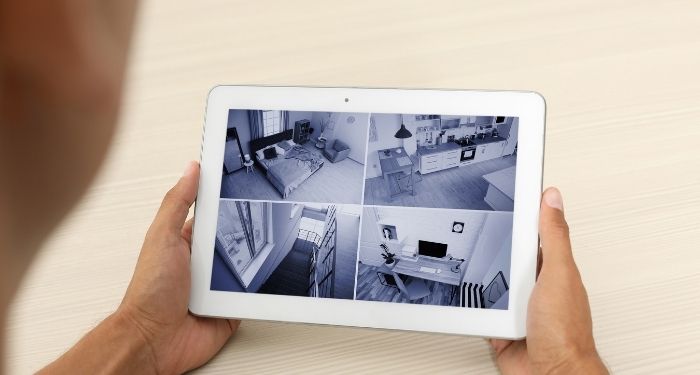
Helps You Feel Safer
Having a security system installed at your home can help make you feel much safer in your home. If you feel unsafe for any reason, you can feel much better knowing that there are cameras installed. You can check them easily, and they will also offer reassurance and make you feel comfortable in your home.
Remote Monitoring
Some CCTV systems allow you to monitor your home from anywhere in the world as long as you have an internet connection. This can be very comforting and reassuring, especially when you are away on holiday.
How Much Does CCTV Cost to Remove?
Removing a CCTV system is usually quite easy. This is something that most people can do as a DIY task. It simply involves unscrewing the cameras and then removing any connecting wires.
Depending on the type of wiring, it’s usually best to turn off the electricity supply before you attempt to remove the CCTV system.
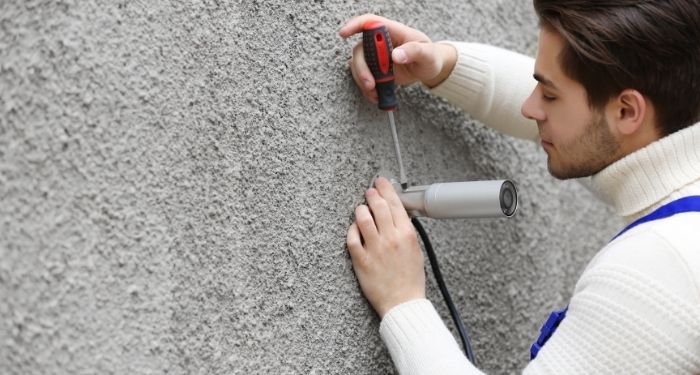
If you are looking to pay a tradesperson to remove your home CCTV system, you will have to keep in mind that you will need to pay them for their time.
The job shouldn’t take too long unless you have a very large number of cameras. You can expect the removal of your CCTV system to take around an hour or two. The average cost for removing your CCTV system is around £120-£150.
FAQs
Where can I point CCTV cameras?
You need to avoid pointing your cameras directly at your neighbour’s lawn or their home. You also need to avoid pointing your cameras into any public spaces. Your camera should only be pointing at your private property; otherwise, you may become subject to GDPR laws. Breaching GDPR laws can lead to some hefty fines, and it’s not really worth the risk.
What does CCTV stand for?
CCTV stands for Closed Circuit Television. This means that the recordings run into an independent recording or monitoring system. The system is not linked to a network that can be accessed by anyone on the outside.
How does motion detection work when it comes to CCTV cameras?
Some CCTV systems will have motion detection. This means they are not recording constantly, but they will record whenever they detect motion around your home. This can help to save storage space on the hard drive.
What is a CCTV system used for?
CCTV systems are used to view and monitor areas to ensure that they are safe and secure.
What is a DVR?
A DVR is a Digital Video Recorder that records CCTV camera footage on one or more hard disks.



